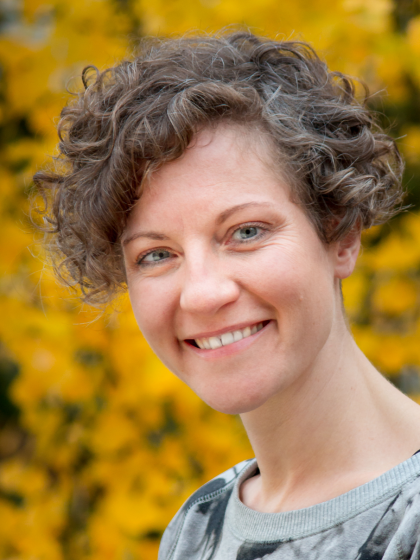N. (Nadja) Contzen, PhD

Developing socially responsible innovations: The role of values and moral emotions
This project studies the role of emotions and underlying values and moral considerations in public responses towards innovations. The project aims to develop an innovative emotion-based design perspective for socially responsible innovations that are acceptable and justifiable on ethical grounds.
For more information please refer to:
http://www.rug.nl/gmw/psychology/value-emotion-innovation
Previous research projects:
2014 - 2015: Explaining the use of safe water kiosks in Kenya.
Access to safe water is still limited in most sub-Saharan countries, including Kenya. Safe water kiosks are an important alternative to piped supply to increase access. However, adoption rates are low, especially in rural areas. The present study investigated sociodemographic, contextual, and social-cognitive factors explaining the use of three water kiosks in Kenya. Kiosk use depended on the prevalence of rainwater harvesting, the kiosks’ actual service performance, and, related to that, the population’s service satisfaction. Furthermore, the actual and perceived costs of the kiosk, self-efficacy beliefs, perceived social norms and pressures, and self-regulatory behaviour appeared to affect kiosk adoption. The results suggest that standard health promotions, affecting perceived risks and health knowledge, might be ineffective to increase use of safe water kiosks. Instead, safe water kiosks might be successfully promoted through increasing social norms, perceived ease of behavior, action control and commitment and by lowering perceived costs and efforts.
In cooperation with Siemens Foundation and the Department Sandec at Eawag.
For more information please refer to:
http://www.eawag.ch/en/department/ess/projekte/ehpsy-water-kiosk-kenya/
2012 - 2013: Changing handwashing behaviour in southern Ethiopia.
Regular handwashing is the single most effective prevention against diarrheal disease. However, handwashing rates are low in many developing countries, including Ethiopia. This handwashing promotion project in the Borena Zone of southern Ethiopia aimed to increase handwashing rates in rural communities through theory- and evidence-based population-tailored interventions. The interventions applied, especially the tippy tap* promotion, proved to be more effective than a standard educational approach: 95% of intervention households were successfully motivated to construct a tippy tap. Three months after the intervention had ended, water and soap were present at the tippy tap in 50% to 80% of the households. The results suggests not only to apply theory and evidence to improve handwashing interventions' effectiveness, but also emphasizes the relevance of tailoring interventions to the target population.
* A tippy tap is a handwashing station constucted out of locally available materials.
In cooperation with Oxfam America and Gayo Pastoral Development Initiative.
For more information please refer to:
http://www.eawag.ch/en/department/ess/projekte/ehpsy-handwashing-ethiopia/
2011: Handwashing behaviour in an emergency context: Haiti in the aftermath of the 2010 earthquake.
Regular handwashing is especially vital during disasters, when the risk of diarrheal disease is elevated. This project, situated in refugee camps and poor neighbourhoods in Port-au-Prince and communities in the Département de l'Ouest in post-earthquake Haiti, aimed to evaluate the impact of public health promotions and cholera response on handwashing rates. The impact of the applied promotional channels proved to be divergent: some were positively associated, some were not associated and others were even negatively associated with handwashing rates. The results underline the importance of rigorous evaluations of hygiene promotions to eliminate unwanted effects such as behaviour impairment.
In cooperation with Oxfam America, Oxfam Great Britain, Oxfam Québec, and Intermón Oxfam.
For more information please refer to:
http://www.eawag.ch/en/department/ess/projekte/ehpsy-handwashing-haiti/
